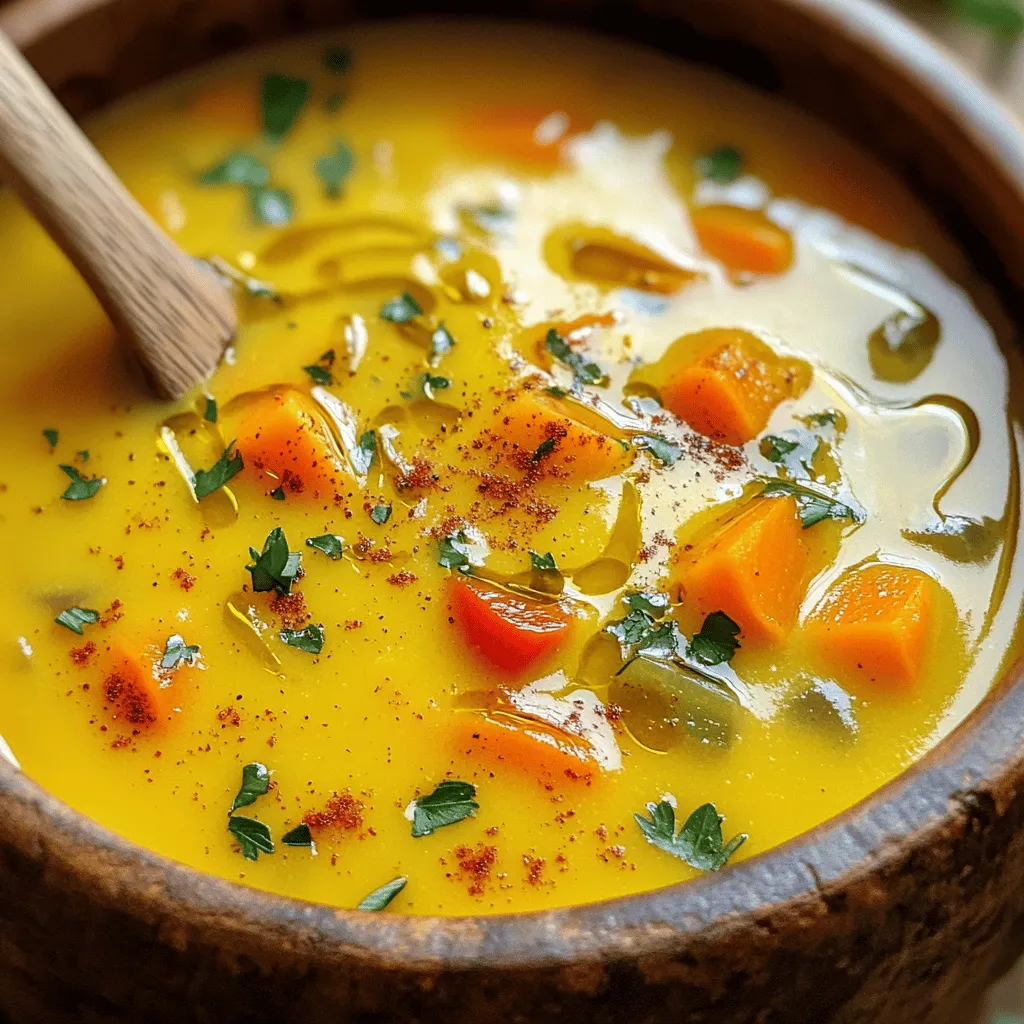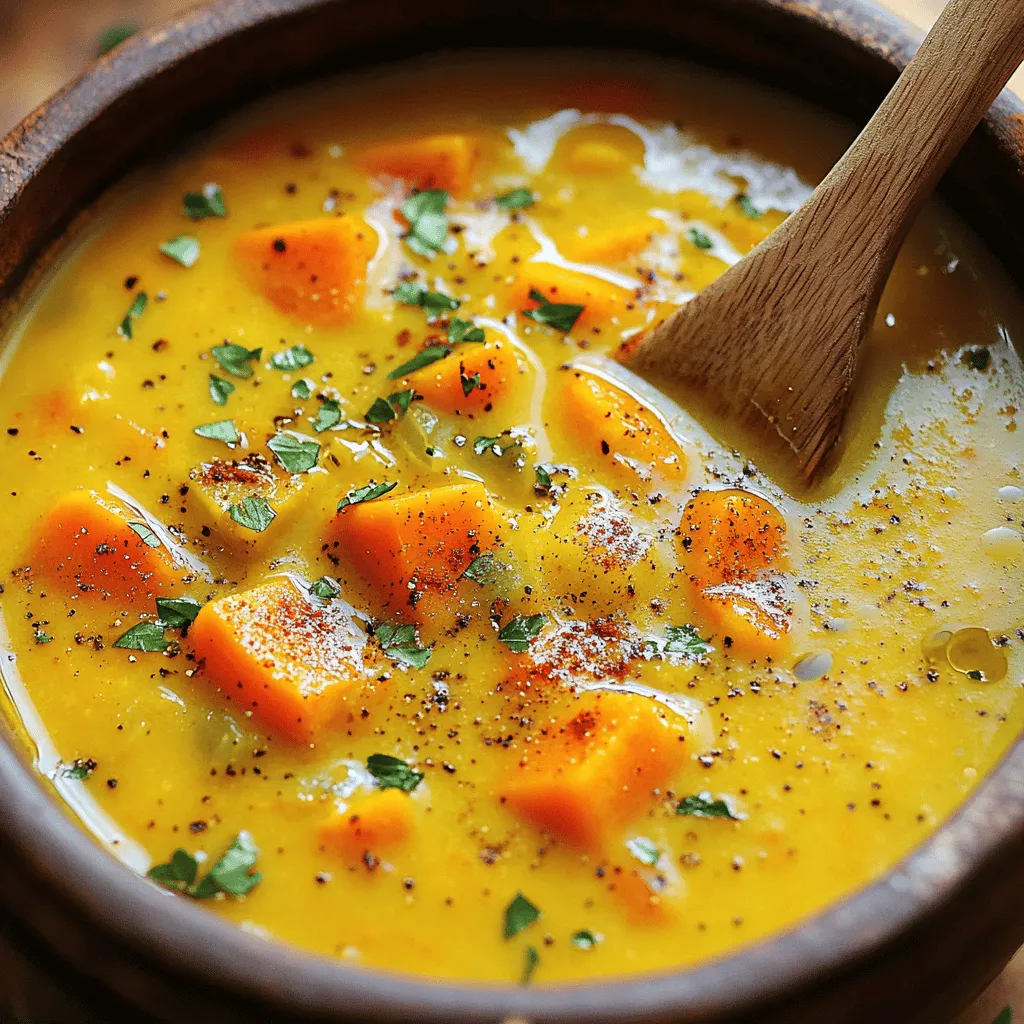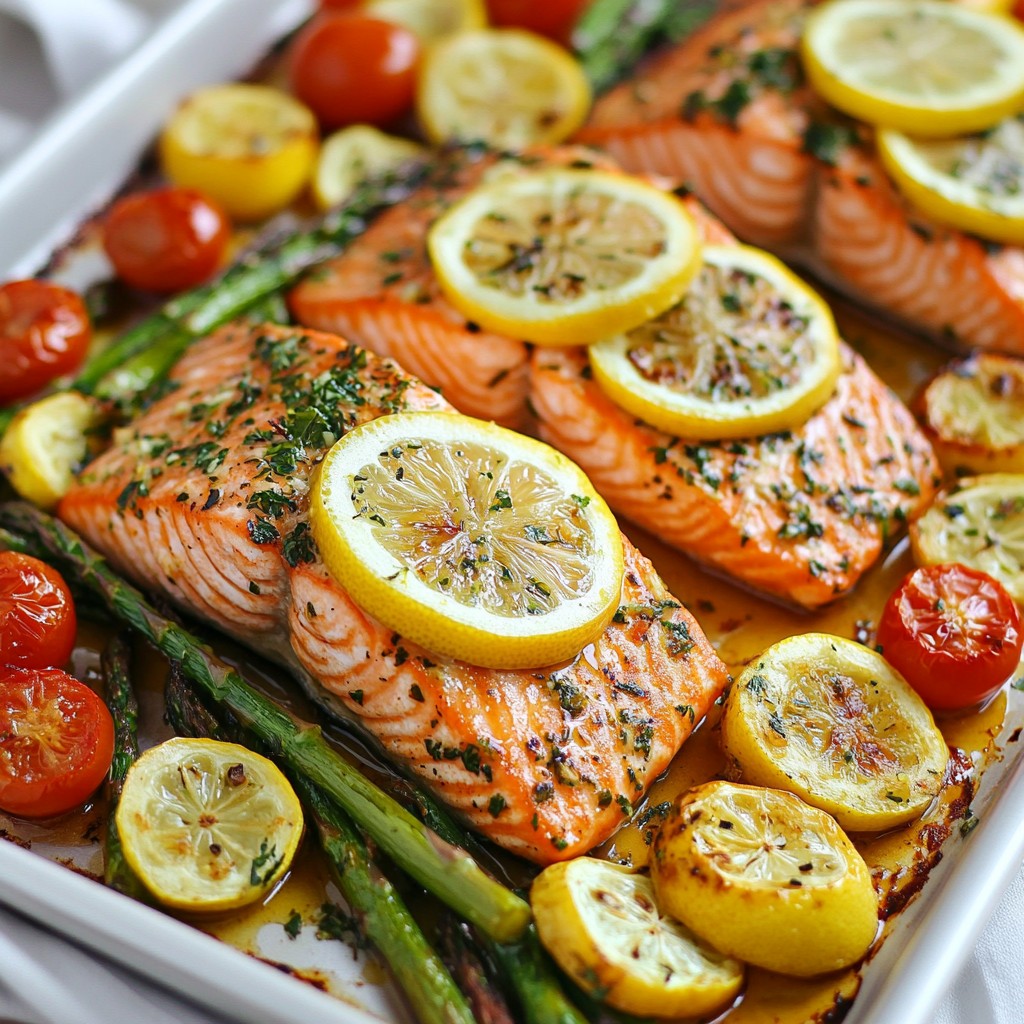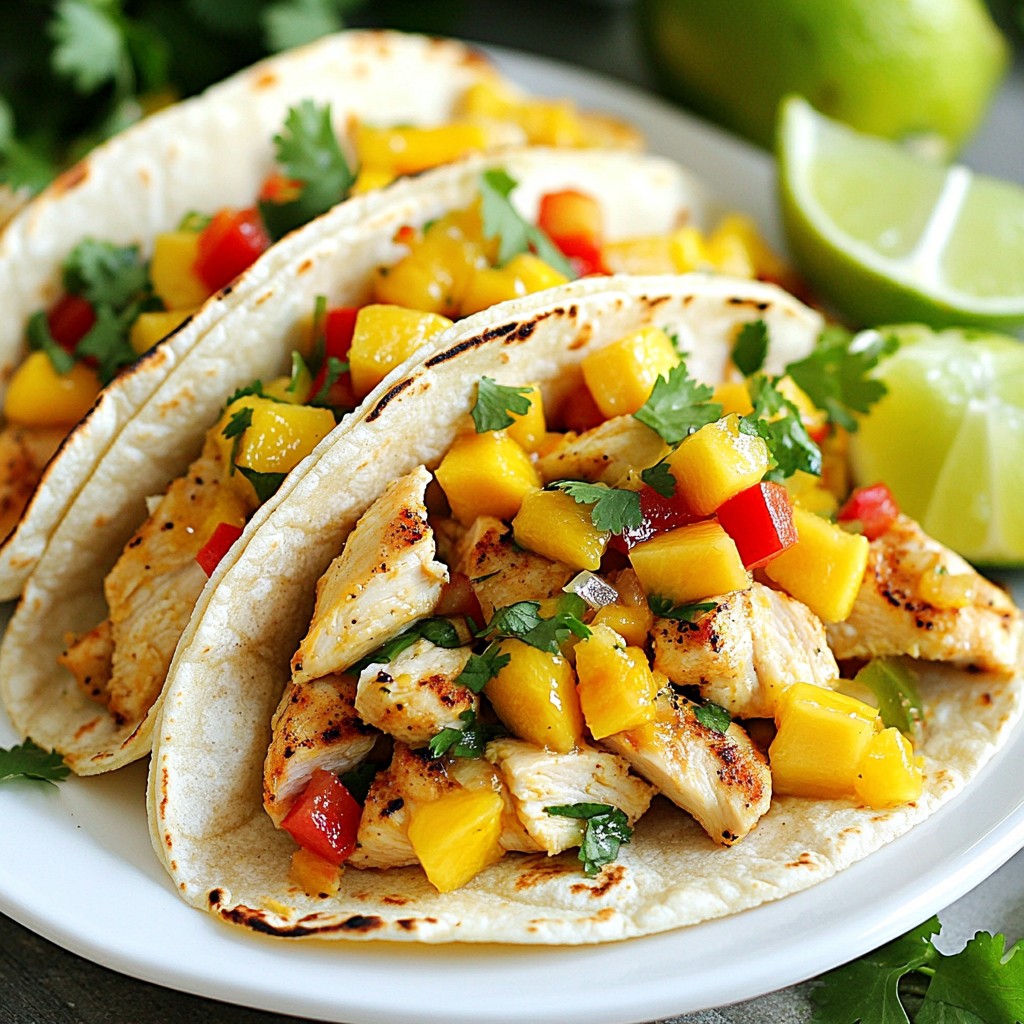Looking for a warm hug in a bowl? This Roasted Vegetable Soup is your answer to comfort and nutrition! Packed with vibrant veggies like butternut squash, carrots, and red bell peppers, each spoonful delivers flavor and health benefits. I’ll guide you through easy steps, from prepping to blending, as well as tips for customization. Get ready to enjoy a delicious meal that nourishes your body and soul!
Ingredients
Main Vegetable Ingredients
– 2 cups butternut squash, peeled and cubed
– 2 cups carrots, chopped
– 1 red bell pepper, diced
– 1 yellow onion, quartered
– 3 cloves garlic, peeled
These vegetables form the heart of our roasted vegetable soup. Butternut squash brings creaminess, while carrots add sweetness. Red bell pepper offers a fresh taste, and yellow onion gives depth. Garlic adds a lovely aroma that makes this soup even more inviting.
Seasoning and Other Ingredients
– 2 tablespoons olive oil
– 4 cups vegetable broth
– 1 teaspoon dried thyme
– 1 teaspoon smoked paprika
– Salt and pepper to taste
– Fresh parsley for garnish
Olive oil helps roast the veggies and adds flavor. Vegetable broth serves as the soup’s base, making it rich and tasty. Dried thyme and smoked paprika enhance the overall flavor. Salt and pepper balance everything out. Finally, fresh parsley adds a pop of color and freshness when you serve it.
Nutritional Information
Each serving of this roasted vegetable soup has around 150 calories. It provides good fiber and important vitamins. Butternut squash is high in vitamin A, which supports eye health. Carrots are great for skin and vision. Red bell peppers bring vitamin C, boosting your immune system. Enjoy this warm bowl of soup that is both comforting and nutritious.
Step-by-Step Instructions
Prepping the Vegetables
To make roasted vegetable soup, you first need to prep the veggies.
– Butternut squash: Start by cutting off the ends. Use a sharp knife to slice it in half lengthwise. Scoop out the seeds. Next, peel the skin off with a vegetable peeler. Then, cut the squash into cubes about one inch wide.
– Carrots: Wash the carrots to remove dirt. Cut off the ends, then slice them into rounds or half-moons. Aim for even pieces so they cook well.
– Onions: Peel the skin off the onion. Cut it in half from top to bottom. Place the flat side down and chop into quarters. This helps them cook evenly.
Roasting the Vegetables
Now it’s time to roast the vegetables.
– Oven temperature: Preheat your oven to 425°F (220°C). This high heat helps caramelize the veggies, bringing out their natural sweetness.
– Duration: Roast the vegetables for 25-30 minutes. Stir halfway through to ensure even cooking and caramelization. You want them tender and slightly browned.
Blending the Soup
After roasting, blending brings the soup together.
– Methods: You can use an immersion blender for easy blending right in the pot. If you prefer a smooth texture, transfer the soup to a stand blender. Blend in batches if needed.
– Adjusting the consistency: After blending, check the soup’s thickness. If it’s too thick, add a little vegetable broth to reach your desired texture. Blend again until smooth.
Tips & Tricks
Roasting Tips
Using oil and seasoning adds great flavor to your soup. Olive oil helps the veggies roast well. It makes them soft and sweet. Seasoning with salt and pepper brings out their taste. If you want more flavor, use dried thyme and smoked paprika. Stir the vegetables halfway through cooking. This helps them cook evenly and get that nice, golden color.
Flavor Enhancements
You can make your soup even better by adding herbs or spices. Try fresh basil or rosemary for a new twist. You can also sprinkle some red pepper flakes for heat. For garnishing, fresh parsley adds a nice touch. A drizzle of olive oil on top will make it look fancy too.
Cooking Equipment Recommendations
For making soup, I recommend a sturdy pot. A heavy pot heats evenly and helps cook the soup well. An immersion blender is perfect for pureeing the soup right in the pot. If you prefer, use a regular blender. Just blend in batches to avoid spills. Use parchment paper on your baking sheet. It makes cleanup easy and keeps the veggies from sticking.

Variations
Alternative Vegetables
You can change the vegetables in this soup to fit your taste. Think about using seasonal veggies like zucchini, sweet potatoes, or even beets. These can add unique flavors and colors. You can also add greens, like spinach or kale, for extra nutrition. Just stir them in during the last few minutes of cooking. This way, they stay bright and fresh.
Dietary Adaptations
This soup can easily fit different diets. It is naturally vegan and gluten-free. For a low-sodium option, choose a low-sodium vegetable broth. You can also skip the salt while cooking. This keeps the soup healthy and still tasty.
Flavor Variations
To make the soup richer, add cream or a non-dairy milk like coconut milk. This will give it a smooth texture. You can also explore different spices. Try adding curry for warmth or cumin for earthiness. Both make the soup more exciting. Adjust the spices to your taste for the best results.
Storage Info
Storing Leftovers
Store your roasted vegetable soup in a sealed container. This keeps it fresh. Place it in the fridge right after it cools. The soup lasts about 4 to 5 days in the fridge. Always check for signs of spoilage before eating.
Freezing Instructions
To freeze the soup, allow it to cool completely. Then, pour it into freezer-safe bags or containers. Make sure to leave some space for expansion. It can last in the freezer for about 3 months. When you’re ready to eat, thaw the soup overnight in the fridge.
Reheating Methods
Reheat your soup on the stove for best flavor. Use low heat and stir often. You can also microwave it in short bursts. Avoid high heat to keep the flavors intact. If you notice separation, stir well after reheating. Enjoy your warm, cozy soup!
FAQs
How do I make Roasted Vegetable Soup taste better?
To enhance the flavor of your soup, try these tips:
– Add fresh herbs like basil or cilantro for a lively taste.
– Squeeze fresh lemon juice to brighten the flavors.
– Incorporate a splash of soy sauce or balsamic vinegar for depth.
– Use roasted garlic instead of raw for a sweeter flavor.
– Stir in a spoonful of nut butter or cream for richness.
– Experiment with spices like cumin or coriander to change the profile.
Can I use frozen vegetables for this soup?
Yes, you can use frozen vegetables! They work well in this soup. Here are some recommendations:
– Use frozen butternut squash or carrots for easy prep.
– Frozen bell peppers and onions save time, too.
– Remember to thaw the vegetables first for even cooking.
– Adjust the cooking time as needed; they may cook faster.
What are some side dishes that pair well with this soup?
There are many great side dishes to serve with your soup:
– Serve with crusty bread or a warm baguette for dipping.
– Pair with a fresh green salad for a light side.
– Grilled cheese sandwiches complement the soup perfectly.
– Consider adding protein, like grilled chicken or chickpeas, for a meal.
– A cheese platter with crackers can make for a nice touch.
This blog post covers how to make a delicious roasted vegetable soup. We explored key ingredients like butternut squash and garlic, and discussed the steps to prep and roast the vegetables. I shared tips for enhancing flavors and suggested variations to fit your diet. Proper storage practices were also outlined to keep leftovers fresh.
In conclusion, wholesome soup can be simple and fun to make. Use the tips to craft your own tasty batch. Enjoy your cooking journey!




